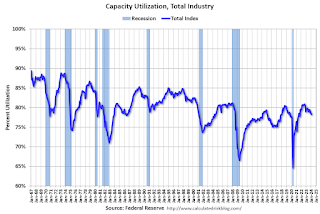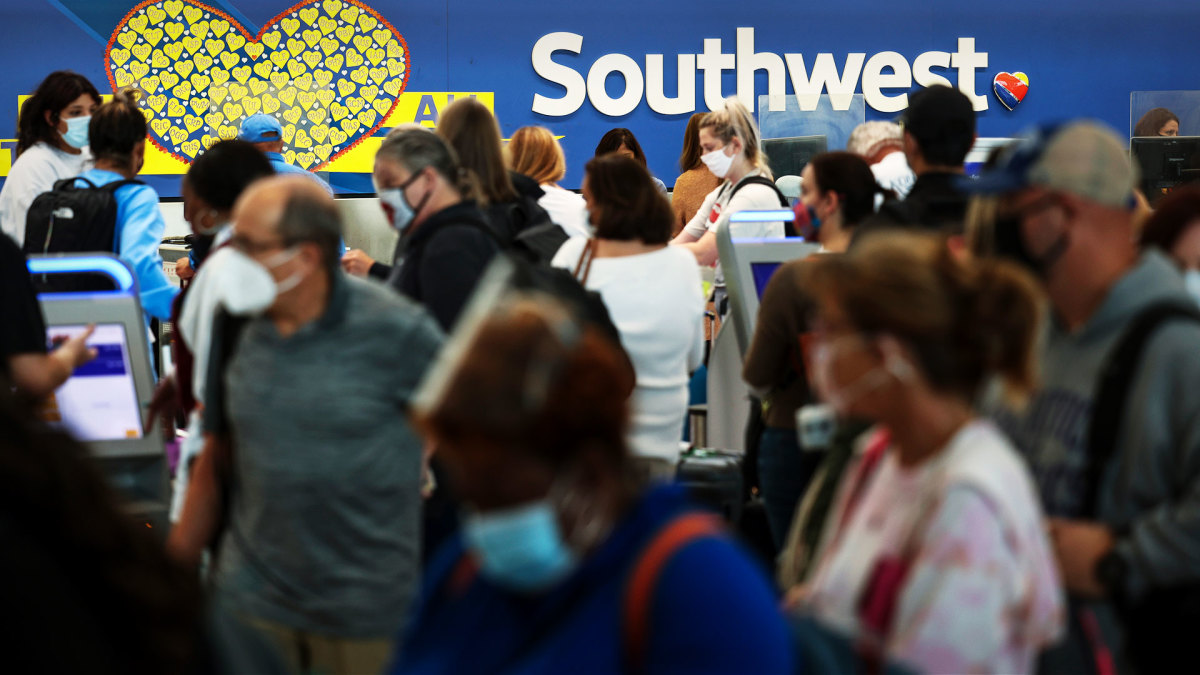Uncategorized
Illinois, Chicago Set To Become More Dangerous As Cash Bail Ends
Illinois, Chicago Set To Become More Dangerous As Cash Bail Ends
Authored by Ted Dabrowski and John Klingner via Wirepoints.org,
Illinois’…

Authored by Ted Dabrowski and John Klingner via Wirepoints.org,
Illinois’ new “no-cash bail” provision – the most extreme cash bail abolition in the country – goes into effect September 18, continuing Illinois leaders’ long-running move to decriminalize and decarcerate the criminal justice system.
The SAFE-T Act, originally passed in Feb. 2021, increases public safety risks for Illinoisans – Chicagoans, in particular – by increasing the number of criminal defendants on pretrial release. Chicago is already well on its way to hitting a post-2019 high in major crimes, as we reported recently.
The criminal justice system is also likely to end up less equitable than before, despite “equity” being the core justification for bail reforms. The end of cash bail could mean more minority defendants being detained pretrial and even more minorities ending up as victims.
The implementation of the no-cash-bail system is the culmination of more than two years of legislative and judicial conflicts over the SAFE-T Act. The act made major changes to law enforcement regulations and court procedures, but the elimination of cash bail was its most contentious provision. The law was halted for a time, but the Illinois Supreme Court ultimately upheld the law.
The original 2021 law was even more radical than what’s now going into effect, to the point where it had to be amended three times after its initial passage. Prior to the amendments, it was nearly impossible to detain many potentially dangerous felony defendants. The law was changed only after lawmakers faced intense pressure from 100 of Illinois’ 102 county prosecutors.
But though the law is now much better than its original, it still opens the door to more lawlessness in a state already experiencing a crime crisis – of shoplifting, robberies, mob actions, low arrest rates, unanswered 911 calls – and with no plan to deal with it.
Here’s why the SAFE-T should eventually be unwound:
1. More defendants out before trial means more risk to Illinoisans
Under the previous cash bail system, all felonies were potentially detainable by a judge. That is no longer the case under the SAFE-T Act. Defendants accused of many low level “Class 4” felonies, like criminal damage to property, are simply non-detainable now.
More defendants out before trial will, necessarily, increase the risk to ordinary Illinoisans. It’s simple: more defendants on the street equals more potential for crime.
Proponents of the SAFE-T Act will argue they’re simply trying to keep “nonviolent” offenders out of jail before trial, but as the City Journal’s Rafael Mangual argues, “Nonviolent Crime” Is a Myth. “[There’s an] important reality that progressives working to ease up on supposedly nonviolent crimes don’t seem to appreciate: even ‘minor’ offenses like retail theft, open-air drug use, and smoking on subway platforms are frequently backed by a threat of violence.”
In other words, “what progressives seem not to understand is that “minor offenses” are often manifestations of the broadly antisocial dispositions of individuals who likely have a much greater propensity for violence than the law-abiding.”
CWB Chicago has compiled a long list of cases where felony defendants awaiting trial committed additional crimes. In 2022 alone, there were 82 victims of murder and attempted murder by defendants already awaiting trial for a felony in Chicago.
There’s far more evidence than that. The ongoing impact of Cook County’s 2017 bail “reforms” (which resulted in no or low cash bail in the county) offers a glimpse of what the rest of Illinois may face under no-cash bail: a growing number of pretrial defendants out on bond who end up charged with new crimes. As we wrote last year:
Quarterly reports from [Cook County Chief Judge Tim] Evans’ office show that by halfway through 2020 nearly 9,500 defendants released before trial had been charged with new offenses. By mid-2022 that number had grown to 15,086. That was 18 percent of defendants set loose before trial.
Of those 15,000-plus alleged crimes by pretrial defendants freed from late 2017 through mid-2022, 2,841 were classified as violent offenses, or “person offenses” such as battery, assault, or child neglect. Another 1,594 crimes were weapons offenses.
2. Judges have less discretion
The press is saying judges under the safety act will have more discretion than before. That’s not true. Illinois judges now have less discretion. Here’s why.
Before the end of cash bail, Illinois had a three-pronged pre-trial hearing system where a judge could (1) detain a defendant due to a “threat to the community,” (2) release the defendant on his own recognizance, or (3) a middle ground option requiring a defendant to post cash bail.
The middle ground is key. It let a judge release a defendant prior to trial while imposing a financial incentive to ensure good behavior – whether it was the defendant paying or somebody else posting bail. Without cash bail and the control it grants, judges no longer have such middle ground.
But that’s precisely where the new law leaves judges today: just two options: (1) detain or (2) release. Discretion is gone.
3. The loss of bail is a threat to “equity”
The loss of discretion may actually do more harm to “equity” in criminal justice. With cash-bail gone, judges could:
(1) Decide to err on the side of caution and detain “on-the-fence” risky defendants – locking up those who otherwise could have been out on cash bail. That means more minority defendants locked up instead of out on cash bail.
(2) Release potentially violent defendants who, without cash bail, have no financial incentive to behave. And that increases the risk to the general public.
And by general public, we mean minorities. They are the overwhelming victims of crime. Over 95 percent of homicides in Chicago are inflicted on minorities: 80 percent black and 15 percent Hispanic victims.
For overall violent crimes, black and Hispanic minorities are the victims 80 percent of the time.
The SAFE-T is anything but safe
Chicago has led the nation in homicides for 11 years running. We’ve recently reported that 60 percent of urgent 911 calls in 2022 had no police to respond. Arrest rates for major crimes have fallen to a pathetic 5 percent.
And yet, there’s no plan to address the crisis. Instead, Gov. J.B. Pritzker, Chicago Mayor Johnson, Cook County State’s Attorney Kim Fox and Cook County Chief Judge Tim Evans have all decided to pursue decriminalization and decarceration. The SAFE-T Act is a key part of that agenda.
Uncategorized
Fast-food chain closes restaurants after Chapter 11 bankruptcy
Several major fast-food chains recently have struggled to keep restaurants open.

Competition in the fast-food space has been brutal as operators deal with inflation, consumers who are worried about the economy and their jobs and, in recent months, the falling cost of eating at home.
Add in that many fast-food chains took on more debt during the covid pandemic and that labor costs are rising, and you have a perfect storm of problems.
It's a situation where Restaurant Brands International (QSR) has suffered as much as any company.
Related: Wendy's menu drops a fan favorite item, adds something new
Three major Burger King franchise operators filed for bankruptcy in 2023, and the chain saw hundreds of stores close. It also saw multiple Popeyes franchisees move into bankruptcy, with dozens of locations closing.
RBI also stepped in and purchased one of its key franchisees.
"Carrols is the largest Burger King franchisee in the United States today, operating 1,022 Burger King restaurants in 23 states that generated approximately $1.8 billion of system sales during the 12 months ended Sept. 30, 2023," RBI said in a news release. Carrols also owns and operates 60 Popeyes restaurants in six states."
The multichain company made the move after two of its large franchisees, Premier Kings and Meridian, saw multiple locations not purchased when they reached auction after Chapter 11 bankruptcy filings. In that case, RBI bought select locations but allowed others to close.
Image source: Chen Jianli/Xinhua via Getty
Another fast-food chain faces bankruptcy problems
Bojangles may not be as big a name as Burger King or Popeye's, but it's a popular chain with more than 800 restaurants in eight states.
"Bojangles is a Carolina-born restaurant chain specializing in craveable Southern chicken, biscuits and tea made fresh daily from real recipes, and with a friendly smile," the chain says on its website. "Founded in 1977 as a single location in Charlotte, our beloved brand continues to grow nationwide."
Like RBI, Bojangles uses a franchise model, which makes it dependent on the financial health of its operators. The company ultimately saw all its Maryland locations close due to the financial situation of one of its franchisees.
Unlike. RBI, Bojangles is not public — it was taken private by Durational Capital Management LP and Jordan Co. in 2018 — which means the company does not disclose its financial information to the public.
That makes it hard to know whether overall softness for the brand contributed to the chain seeing its five Maryland locations after a Chapter 11 bankruptcy filing.
Bojangles has a messy bankruptcy situation
Even though the locations still appear on the Bojangles website, they have been shuttered since late 2023. The locations were operated by Salim Kakakhail and Yavir Akbar Durranni. The partners operated under a variety of LLCs, including ABS Network, according to local news channel WUSA9.
The station reported that the owners face a state investigation over complaints of wage theft and fraudulent W2s. In November Durranni and ABS Network filed for bankruptcy in New Jersey, WUSA9 reported.
"Not only do former employees say these men owe them money, WUSA9 learned the former owners owe the state, too, and have over $69,000 in back property taxes."
Former employees also say that the restaurant would regularly purchase fried chicken from Popeyes and Safeway when it ran out in their stores, the station reported.
Bojangles sent the station a comment on the situation.
"The franchisee is no longer in the Bojangles system," the company said. "However, it is important to note in your coverage that franchisees are independent business owners who are licensed to operate a brand but have autonomy over many aspects of their business, including hiring employees and payroll responsibilities."
Kakakhail and Durranni did not respond to multiple requests for comment from WUSA9.
bankruptcy pandemicUncategorized
Industrial Production Increased 0.1% in February
From the Fed: Industrial Production and Capacity Utilization
Industrial production edged up 0.1 percent in February after declining 0.5 percent in January. In February, the output of manufacturing rose 0.8 percent and the index for mining climbed 2.2 p…

Industrial production edged up 0.1 percent in February after declining 0.5 percent in January. In February, the output of manufacturing rose 0.8 percent and the index for mining climbed 2.2 percent. Both gains partly reflected recoveries from weather-related declines in January. The index for utilities fell 7.5 percent in February because of warmer-than-typical temperatures. At 102.3 percent of its 2017 average, total industrial production in February was 0.2 percent below its year-earlier level. Capacity utilization for the industrial sector remained at 78.3 percent in February, a rate that is 1.3 percentage points below its long-run (1972–2023) average.Click on graph for larger image.
emphasis added
This graph shows Capacity Utilization. This series is up from the record low set in April 2020, and above the level in February 2020 (pre-pandemic).
Capacity utilization at 78.3% is 1.3% below the average from 1972 to 2022. This was below consensus expectations.
Note: y-axis doesn't start at zero to better show the change.
 The second graph shows industrial production since 1967.
The second graph shows industrial production since 1967.Industrial production increased to 102.3. This is above the pre-pandemic level.
Industrial production was above consensus expectations.
Uncategorized
Southwest and United Airlines have bad news for passengers
Both airlines are facing the same problem, one that could lead to higher airfares and fewer flight options.

Airlines operate in a market that's dictated by supply and demand: If more people want to fly a specific route than there are available seats, then tickets on those flights cost more.
That makes scheduling and predicting demand a huge part of maximizing revenue for airlines. There are, however, numerous factors that go into how airlines decide which flights to put on the schedule.
Related: Major airline faces Chapter 11 bankruptcy concerns
Every airport has only a certain number of gates, flight slots and runway capacity, limiting carriers' flexibility. That's why during times of high demand — like flights to Las Vegas during Super Bowl week — do not usually translate to airlines sending more planes to and from that destination.
Airlines generally do try to add capacity every year. That's become challenging as Boeing has struggled to keep up with demand for new airplanes. If you can't add airplanes, you can't grow your business. That's caused problems for the entire industry.
Every airline retires planes each year. In general, those get replaced by newer, better models that offer more efficiency and, in most cases, better passenger amenities.
If an airline can't get the planes it had hoped to add to its fleet in a given year, it can face capacity problems. And it's a problem that both Southwest Airlines (LUV) and United Airlines have addressed in a way that's inevitable but bad for passengers.
Image source: Kevin Dietsch/Getty Images
Southwest slows down its pilot hiring
In 2023, Southwest made a huge push to hire pilots. The airline lost thousands of pilots to retirement during the covid pandemic and it needed to replace them in order to build back to its 2019 capacity.
The airline successfully did that but will not continue that trend in 2024.
"Southwest plans to hire approximately 350 pilots this year, and no new-hire classes are scheduled after this month," Travel Weekly reported. "Last year, Southwest hired 1,916 pilots, according to pilot recruitment advisory firm Future & Active Pilot Advisors. The airline hired 1,140 pilots in 2022."
The slowdown in hiring directly relates to the airline expecting to grow capacity only in the low-single-digits percent in 2024.
"Moving into 2024, there is continued uncertainty around the timing of expected Boeing deliveries and the certification of the Max 7 aircraft. Our fleet plans remain nimble and currently differs from our contractual order book with Boeing," Southwest Airlines Chief Financial Officer Tammy Romo said during the airline's fourth-quarter-earnings call.
"We are planning for 79 aircraft deliveries this year and expect to retire roughly 45 700 and 4 800, resulting in a net expected increase of 30 aircraft this year."
That's very modest growth, which should not be enough of an increase in capacity to lower prices in any significant way.
United Airlines pauses pilot hiring
Boeing's (BA) struggles have had wide impact across the industry. United Airlines has also said it was going to pause hiring new pilots through the end of May.
United (UAL) Fight Operations Vice President Marc Champion explained the situation in a memo to the airline's staff.
"As you know, United has hundreds of new planes on order, and while we remain on path to be the fastest-growing airline in the industry, we just won't grow as fast as we thought we would in 2024 due to continued delays at Boeing," he said.
"For example, we had contractual deliveries for 80 Max 10s this year alone, but those aircraft aren't even certified yet, and it's impossible to know when they will arrive."
That's another blow to consumers hoping that multiple major carriers would grow capacity, putting pressure on fares. Until Boeing can get back on track, it's unlikely that competition between the large airlines will lead to lower fares.
In fact, it's possible that consumer demand will grow more than airline capacity which could push prices higher.
Related: Veteran fund manager picks favorite stocks for 2024
bankruptcy pandemic stocks-

 Uncategorized3 weeks ago
Uncategorized3 weeks agoAll Of The Elements Are In Place For An Economic Crisis Of Staggering Proportions
-

 International1 week ago
International1 week agoEyePoint poaches medical chief from Apellis; Sandoz CFO, longtime BioNTech exec to retire
-

 Uncategorized4 weeks ago
Uncategorized4 weeks agoCalifornia Counties Could Be Forced To Pay $300 Million To Cover COVID-Era Program
-

 Uncategorized3 weeks ago
Uncategorized3 weeks agoApparel Retailer Express Moving Toward Bankruptcy
-

 Uncategorized4 weeks ago
Uncategorized4 weeks agoIndustrial Production Decreased 0.1% in January
-

 International1 week ago
International1 week agoWalmart launches clever answer to Target’s new membership program
-

 Spread & Containment2 days ago
Spread & Containment2 days agoIFM’s Hat Trick and Reflections On Option-To-Buy M&A
-

 Uncategorized4 weeks ago
Uncategorized4 weeks agoRFK Jr: The Wuhan Cover-Up & The Rise Of The Biowarfare-Industrial Complex





















